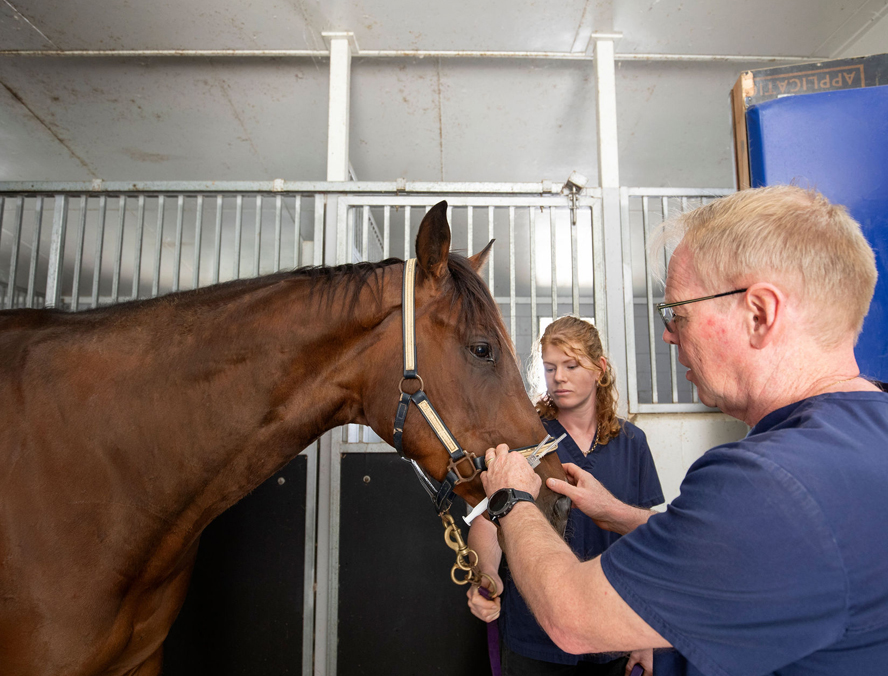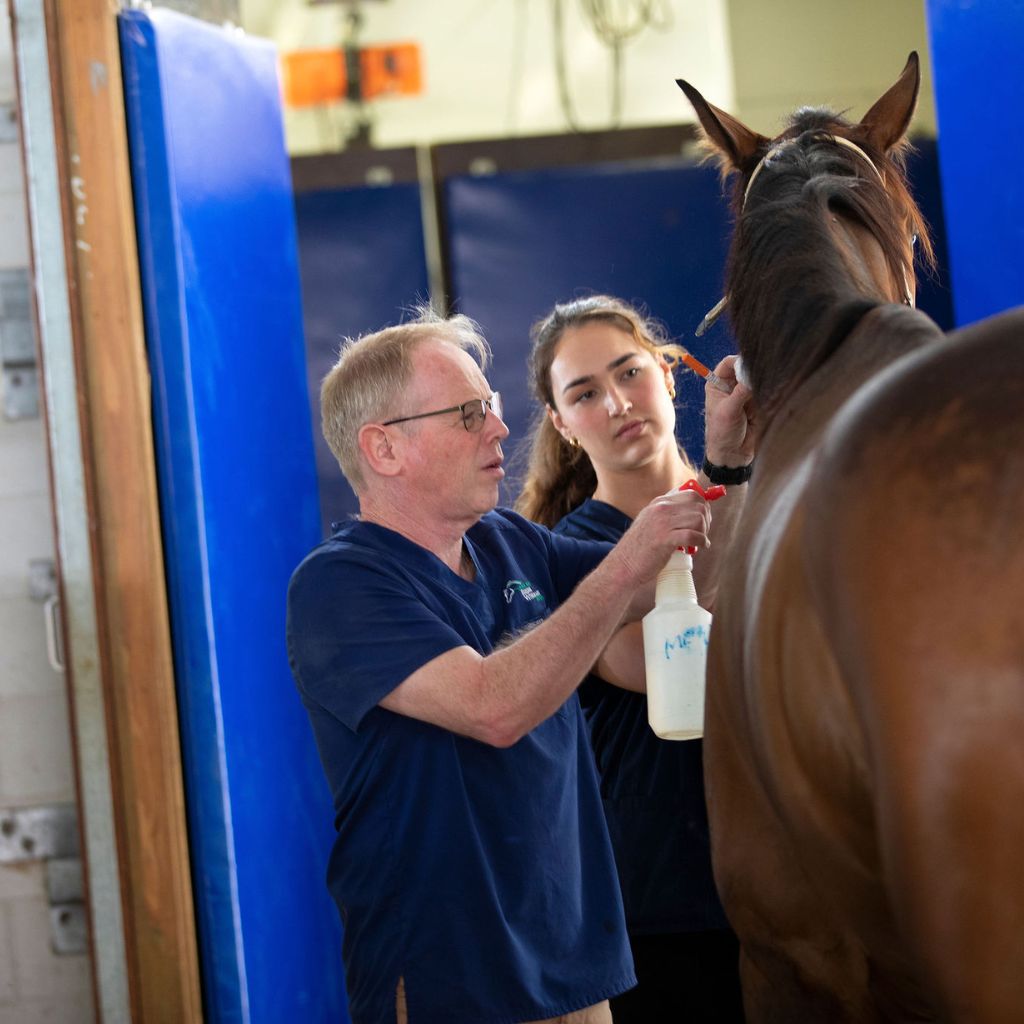Sunshine Coast Equine Veterinary Clinic
Vaccinations
Vaccinations are an important tool in helping to protect horses from preventable diseases and illnesses. They are designed to stimulate the horse’s immune system, enabling it to recognize, fight, and defend itself against certain diseases.
Vaccinating horses can help reduce the risk of certain deadly diseases, as well as reducing the severity of symptoms if the horse does become infected. By vaccinating your horse you can also help protect other horses on the premises and also reduce the spread of disease.
Vaccinations are an important part of a horse’s overall health and wellbeing, and should be considered an essential part of horse care.
Maintaining the protection provided by vaccinations is important and boosters should be carried out as per the schedule advised by your veterinarian.


vaccinations
Tetanus, Strangles and Hendra
Tetanus – Horses are very susceptible to Tetanus even the smallest of wounds or deep muscle bruising may be enough to trigger this life-threatening disease, therefore we recommend that all horses receive an annual vaccination and in the event of a serious wound they also receive a Tetanus Anti Toxin (TAT).
Tetanus requires an annual booster, following an initial primary course, as per the manufacturers recommendations.
Strangles – An annual strangles vaccination is also recommended and is usually given in combination with the Tetanus vaccination. Strangles is a highly contagious bacterial infection resulting in a severe purulent nasal discharge (snotty nose) and swelling of the lymph nodes in and around the head and jaws.
Occasionally it can result in what is called Bastard Strangle a chronic form of the disease which causes chronic wasting and ill thrift.
Strangles requires an annual booster, following an initial primary course, as per the manufacturers recommendations.
Hendra Vaccination – As Hendra is endemic in Queensland we highly recommend horses be vaccinated against this viral disease which is not only fatal in horses but also to humans, as it is zoonotic in that it can be passed to humans who have come into contact with an infected horse.
In addition to protecting your horse, and those in contact with it including your veterinarian, if the horse is fully vaccinated it can receive immediate treatment including invasive procedures and admission to our clinic.
Hendra presents in many forms from respiratory, colic, ataxia and wobbly, to just being dull and depressed, with or without a temperature.
Vaccination also ensures the horse will receive prompt treatment avoiding unnecessary delays and suffering while waiting for an exclusion test to rule out the possibility of the horse having Hendra